SHS: Lab Two
1/40
There's no tags or description
Looks like no tags are added yet.
Name | Mastery | Learn | Test | Matching | Spaced |
|---|
No study sessions yet.
41 Terms
Abduction
Movement toward midline
Abduction
Movement away from midline
Laryngeal Airway Resistance
The opposition provided by the larynx to the mass flow of air through it
Vocal fold abduction or adduction
The main contributor to glottal size and configuration is…?
The longitudinal tension exerted by the cricothyroid muscles and activation of the muscles within the vocal folds (thyroarytenoid muscles)
Major contributors to vocal fold stiffness are…?
Cranial nerve VII (7)/ X (Vagus)
The intrinsic laryngeal muscles are innervated by…?
Pulmonary airway protection and sound generation
The two functions of larynx are…?
Separate and return midline at the bottom first (Mucosal wave)
Medial surfaces of the vocal folds…?
Fundamental frequency (expressed in Hertz, Hz, cycles/second)
The rate of vocal fold vibration
Pitch
Fundamental Frequency is…?
Vocal fold stiffness
Fundamental frequency is determined most importantly by…?
Sound pressure level (In decibels, dB)
Is a measure of the acoustic signal…?
Loudness
Sound pressure level is…?
The laryngeal voice source and the “filter” that shapes it.
Voice quality is dependent on…?
Eight
How many cranial bones are there?
Fourteen
How many facial bones are there?
Eight
How many sinuses are there?
Nasopharynx, oropharynx, and laryngopharynx
Cavities of the pharynx
Velum
Consists of the soft palate and uvula
Septum
The nasal cavities are separated by…?
Recoil of muscles, cartilages, and connective tissues, surface tension, gravity, aeromechanical forces
List passive forces of the velopharynx
Muscles of the pharynx, muscles of the velum, muscles of the outer nose
List active forces of the velopharynx
Superior, middle, and inferior
The constrictor muscles are made up of…?
Inferior constrictor
Contains the thyropharyngeus (upper) and cricopharyngeus (lower) muscles

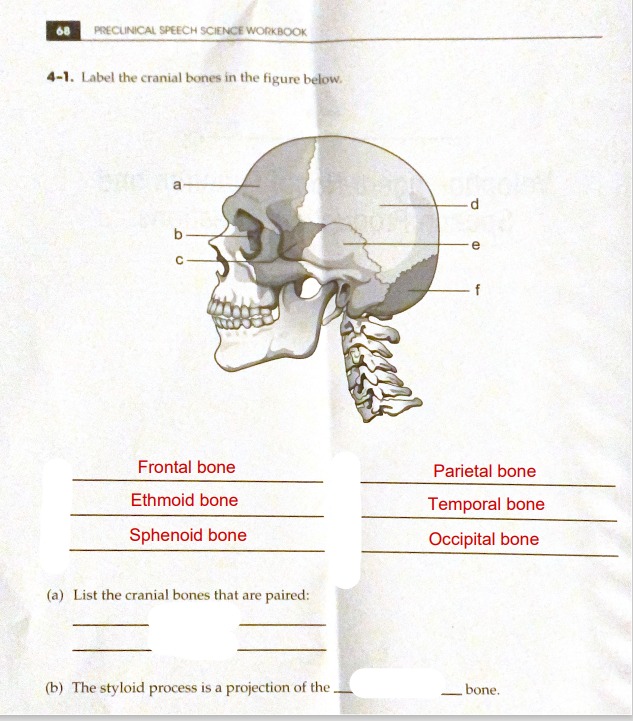
Temporal and parietal
Which cranial bones are paired…?
Temporal bone
The styloid process is a projection of the…?
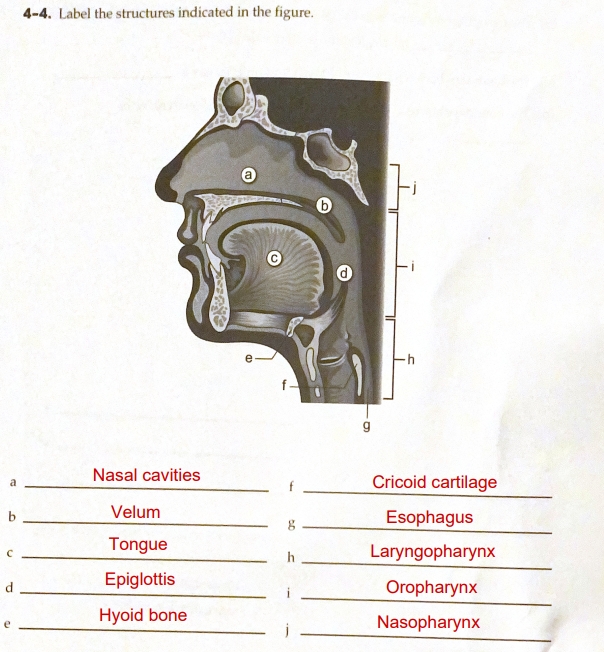
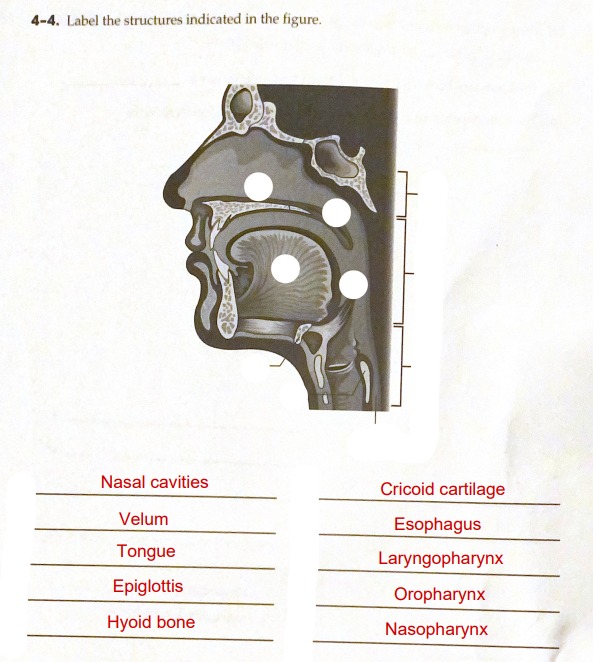
Nasopharynx
The eustachian tubes extend from the middle ears to the lateral walls of the…?
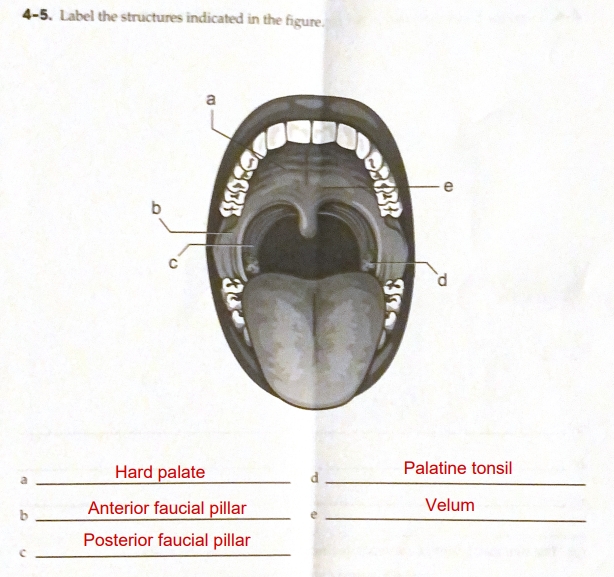
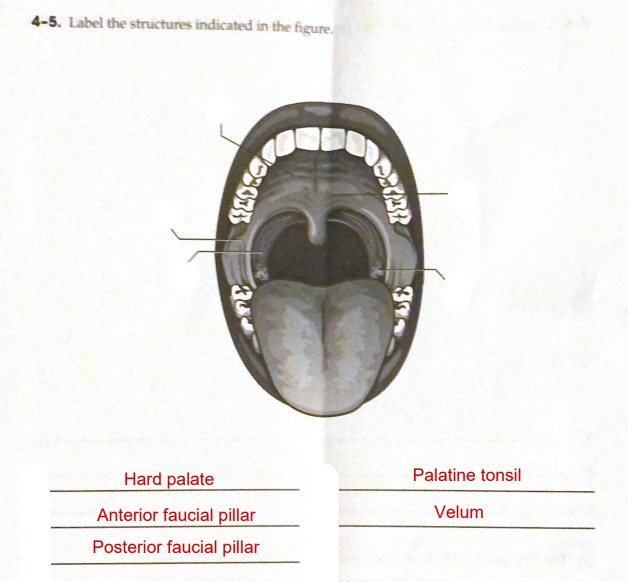
Oropharynx
When you open mouth to say “ah” you can see the back wall of…?
Constricts pharynx
Superior constrictor…?
Constricts pharynx
Middle constrictor…?
Constricts pharynx
Inferior constrictor…?
Constricts and raises pharynx
Salpingopharyngeus…?
Widens and raises pharynx
Stylopharyngeus…?
Constricts and raises pharynx
Palatopharyngeus…?
Pulls upward and backward on the velum
Palatal levator…?
Pulls upward, shortens, and increases the bulk of the velum
Uvulus…?
Pulls downward and forward the velum
Glossopalatine
Pulls downward and backward on the velum
Pharyngopalatine